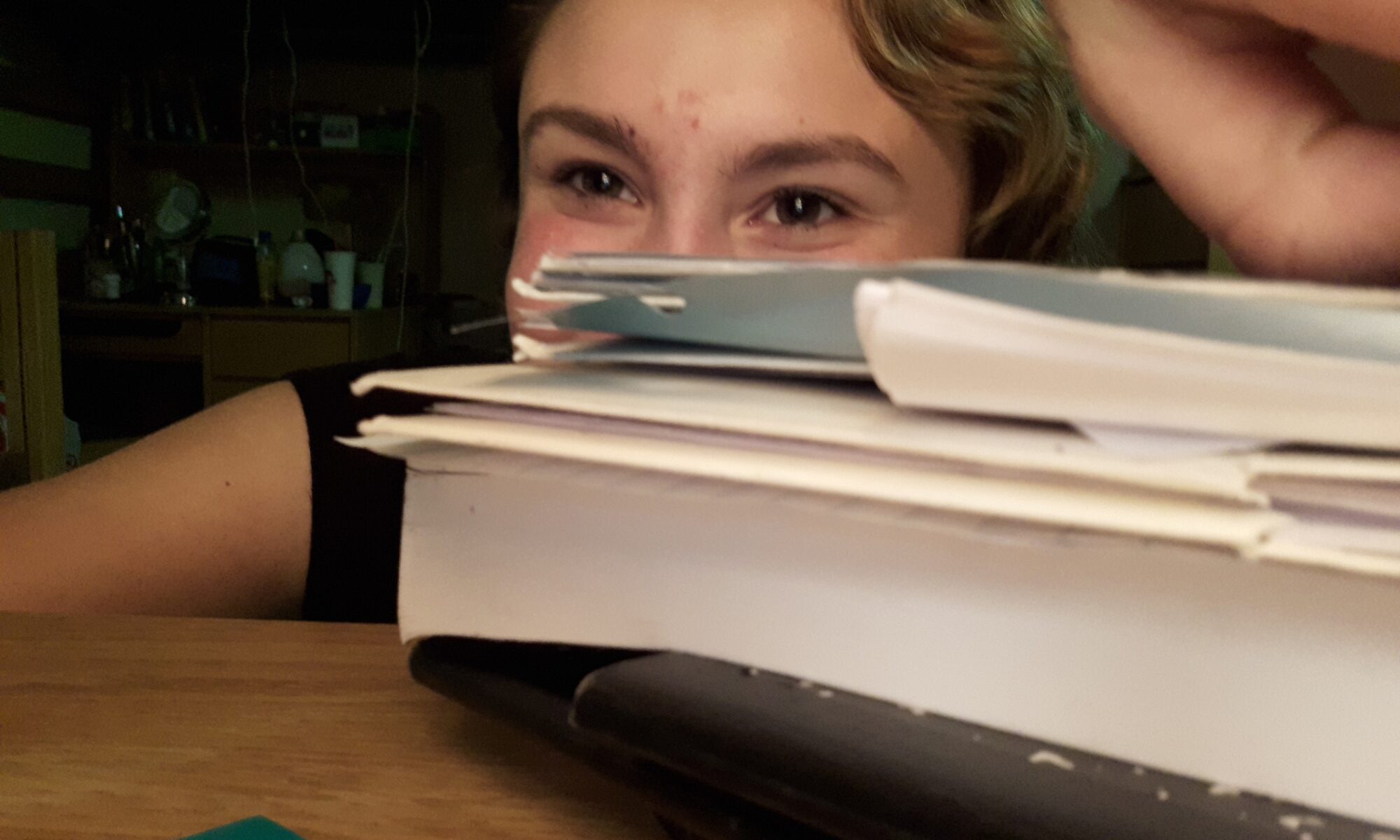Maiah Reilich-Godino
Professor Lowe
Quant Lit
February 21, 2020
Is College all it’s Cracked Up to Be?
College has been a huge part of many people’s lives throughout the years. However, in recent years, there has been a change in the statistics, as more and more young adults decide not to go to college. Many Teenagers do not have the financial means to put themselves through college or they feel the debt they will incur is not worth the salary they will earn when they graduate. Many students will begin school but later drop out due to complicated life circumstances including but not limited to work stress, financial stress, declining mental health, and over lack of feeling they are getting a meaningful education from their school. Many students nowadays are deciding to take a gap year after highschool before entering college. This is a fantastic way for students to figure out what is important to them. To begin saving money and gaining more independence so that they are properly prepared to embark on their four year journey towards building a career. I didn’t take a whole year off, but I did start a semester late. This gave me the ability to work for 6 consecutive months and make around $8,000. It gave me the opportunity to continue my independent living situation and develop strong personal care habits. Most importantly it reinstilled the notion that college is extremely important to me, and this is what I want to do with my life.
As we know, college is very expensive. To find out how much it actually is for me, I went to Self Service and added up all the various costs associated with the college experience. The total for one semester without any financial aid or scholarships is $24,254. That multiplied by the 8 semesters I will be attending Maryville College is $194,032. That is close to 200,000 dollars.That costs around $60,000 more than my mother’s home. I took the amount I owe this semester and divided it by the amount of credit hours I am taking which is 12 and I got 2,021 dollars and 20 cents. That amount represents the amount of money I am spending for each credit hour. Our Quantitative Literacy class meets 42 times this semester. I set up the equation 42x=2,021.20 and I got $48.12. Doing the same thing with my Psychology class, I set up the equation 28x=2,021.20 and I got $72.19. My first year seminar class meets 37 times. I set up the same equation and got x=$54.63. My English class meets 32 times a semester and so I got that the price of each class is $63.16.
To me, it does not seem very fair that Tuesday/Thursday classes are more per class meeting. It would make sense if the only classes that you had on that day were specific to your major, but my friend Elizibeth has an English class Tuesdays and Thursdays and she is a Writing/Communications major. At the same time, it is a longer class period so you should be paying more for your professor’s time. I was not particularly surprised that the Tuesday/Thursday classes cost more, once I had set up the problem and saw a larger number being divided by a smaller number, I knew the smaller number was going to produce a larger dividend.
My English teacher allows students to miss up to five classes before it drops us a letter grade. The reduction of your grade is punishment in and of itself, but on top of that if I missed five classes I would also be wasting $315.80. That is enough money to buy spray tans at Sun Tan City for almost two years.
Despite all of these expenses associated with college millennials are still going to college to get their degrees. Why? Pew Research Center says that people who go to college to earn their degree earn $17,500 more than people who only have a high school diploma. People who have a Bachelor’s degree make around $45,000 dollars while people with only a high school diploma make around $28,000. This serious gap in wages did not used to be this large. During the Silent generation, college graduates made around $38,000 while high school graduates made around $31,000. That’s only a seven thousand dollar difference. During the age of the Late Boomers, around 1986, is when the wage gap began to broaden. The unemployment rate of Bachelor degree holding Millennials was 3.8 in the 2014 article while the unemployment rate of high school diploma holding Millennials was 12.2. I can only assume that at around the same time the wage gap was growing, the unemployment rate skyrocketed as well. It came as no surprise to me that college graduates who got jobs in their ideal career path saw those base level jobs as stepping stones up to what they wanted in the job force. While their high school diploma counterparts used their job just to get by. Some people I know kept their high school waitressing jobs and did not go to college. These same people always complain that they hate their jobs and are just using them to pay the bills or to just get by barely. My mom says those people are living paycheck to paycheck which people who have college degrees do not necessarily have to do. People who make $25,000 or less annually really struggle with making ends meet and they are the people who typically have to work another job that they do not like.
There are different reasons why college can have a positive impact on a person’s life and make the grand amount of money you have to spend worth it. For me, college is the first stepping stone to becoming a professional business woman who lives on the 37th floor of my apartment building that is all glass and has a white marble island in the middle of my kitchen. In high school I was registered as a homless youth, my father did not want me and my mother was unable to provide for me. I went without food, I went without safe places to stay, I could not perform at my highest level due to my lack of support and unstable living situations. Being here is everything I worked so hard for, it is the better life I promised myself I would get if I just gritted my teeth and kept pushing.. College has been a wonderful experience so far and I have only been here for a little over a month. I have made connections with both students and professors that I respect and admire. In that sense, college makes me very happy, I have an endless amount of resources at my disposal, and all I have to do is put the work in and utilize them. For someone else, that same thing may be true, but college can also make people happy in the sense that they find a sense of belonging, or being developing independence and a personality outside of the constraints of their family.
In many ways, college can affect your wellbeing. This can be positive, it can shape the way you think about things or change your study habits or what you are passionate about in life. However, more often than not though, the effects are negative (Roberts). College hasn’t been nearly as stressful as the spring semester of my senior year of high school, However, the workload and stress levels are still very much there. I have definitely started feeling the effects of sleep deprivation. My physical health has improved due to my increased level of physical activity and the access to healthy substantial meals. But many of my personal care habits have begun to slip due to my lack of free time , and extreme exhaustion. Now that I do not have to work 50-60 hours a week you would think I would have more free time on my hands, but that is not the case. College is a full time job and more, and anybody who tells you otherwise clearly isn’t doing their homework. Aside from physical and mental health effects, there is still the serious issue of 18 year olds taking on large quantities of student debt. That is a serious issue that can begin to take effect on people from the start of their freshman year and will stay with them well into adulthood.If you were to look only at this particular aspect of college, then yes, one could say that college does have a negative impact on individuals.
For the career path I have decided upon, I have to go to college to attain at least a Masters to be taken seriously or even be considered for the job that I want. I want to be a financial analyst, traveling internationally to help companies make budget decisions and manage their money for individual projects more effectively. Realistically I will start as a low level employee at a large corportant chain.. An average salary is about $53,000 according to Financial Analyst. No matter what though, I will be in school for a long time paying a lot of money. To me, college is worth it because I am getting the opportunity to become the person I have always imagined that I would be and also because I will get to help people for the rest of my life while doing what I love. Honestly I am simply grateful to have a warm bed, hot food, caring support system, and be moving in a forward direction with my life. Without college I do not know if I would have been able to change my life trajectory. Being here in college is helping to restore my faith in the American Dream
Works Cited
“Education: The Rising Cost of Not Going to College.” Pew Research Center’s Social & Demographic Trends Project, 22 Dec. 2014, www.pewsocialtrends.org/2014/02/11/the-rising-cost-of-not-going-to-college/.
Lake, Rebecca. “Why Upper Middle Are Living Paycheck-to-Paycheck.” Investopedia, Investopedia, 12 Mar. 2019, www.investopedia.com/articles/personal-finance/091015/why-high-earners-still-live-paychecktopaycheck.asp.
Roberts, Lauren cahoon. “9 Ways Going to College Affects Your Health.” LiveScience, Purch, 3 Sept. 2013, www.livescience.com/39366-how-college-affects-health.html.
“Service – Home.” Self, 1995, selfservice.maryvillecollege.edu/SelfService/Home.aspx.
Return to Moo’s Musings


